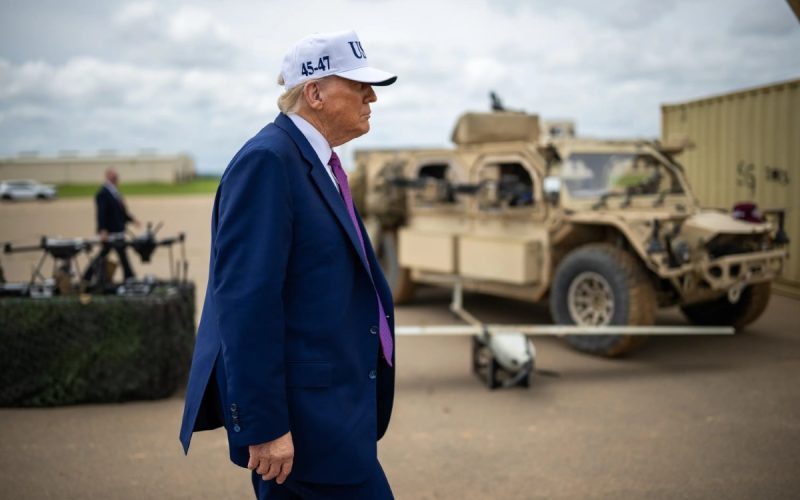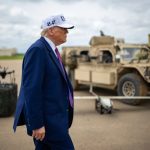The world watches with bated breath as tensions between Iran and Israel escalate into a dangerous new phase. Missile strikes, evacuations, and fiery rhetoric dominate headlines, but the real story may be unfolding behind the scenes—in the war of words between global superpowers.
China has thrown a bold accusation at US President Donald Trump, claiming he is “fanning the flames” and “pouring oil” on the already volatile Iran-Israel conflict. The spark? Trump’s recent, urgent message to residents of Tehran: “Everyone must leave Tehran immediately!”
Trump’s warning, blasted across his social media platform, sent shockwaves through the international community. The US President’s tone was dire, hinting at impending devastation if Iran did not yield to demands regarding its nuclear program.
As Israeli airstrikes intensified, targeting key military and nuclear sites, reports from Tehran described scenes of chaos—explosions rattling the city, air defense systems lighting up the night sky, and emergency teams scrambling to save lives.
The Iranian government claims that Israel’s attacks have killed hundreds of civilians and decimated critical infrastructure, while Israel reports its own civilian casualties and mass evacuations in response to Iranian missile strikes.
China’s response was swift and sharp. Foreign Ministry spokesperson Guo Jiakun accused Trump of deliberately stoking tensions, making an already dangerous situation even worse. “The United States should not be issuing threats and applying pressure at such a sensitive time,” Guo said, echoing the sentiments of Foreign Minister Wang Yi.
Wang has been busy on the phone, speaking with both Iranian and Israeli officials, positioning China as a potential mediator—a role it’s eager to play, especially as US influence in the region wanes.
This marks a notable shift from China’s approach to other global crises, like the war in Ukraine, where Beijing has largely stayed on the sidelines. Now, China is stepping into the spotlight, condemning Israel’s actions as a violation of Iran’s sovereignty and calling for restraint on all sides.
But not everyone is convinced. Critics argue that China’s close ties to Iran and its critical stance toward Israel limit its ability to act as a neutral peacemaker.
The human cost of this conflict is mounting. Iranian officials report hundreds of civilian deaths and widespread destruction, while Israel has suffered its own losses and has evacuated thousands from areas under threat.
The Revolutionary Guards have vowed to retaliate with everything they have, turning cities and military bases into legitimate targets. Meanwhile, countries like India are scrambling to get their citizens out of harm’s way, with reports of Indian nationals successfully crossing into Armenia.
The roots of this crisis are deep and tangled. Israel’s latest offensive, launched just days ago, was described by Prime Minister Benjamin Netanyahu as a necessary preemptive strike to neutralize an existential threat. Iran’s response has been swift and severe, with missile strikes that have managed to penetrate Israel’s vaunted air defenses. The conflict has reignited fears of a wider regional war, with the US beefing up its military presence in the Middle East and other global powers weighing in.
Trump’s abrupt departure from the recent G7 summit in Canada only added to the intrigue. While some speculated he was leaving to broker a ceasefire, Trump himself dismissed those rumors, hinting at even bigger plans. The White House has remained tight-lipped, but behind closed doors, the National Security Council is reportedly in crisis mode, scrambling to respond to the rapidly evolving situation.
Calls for diplomacy are growing louder, but they’re being drowned out by the roar of missiles and the rhetoric of war. Spain’s Foreign Minister, Albares, has urged a return to negotiations on the nuclear issue, but with both Israel and Iran digging in their heels, and Trump’s incendiary comments adding fuel to the fire, the path to peace seems increasingly narrow.
The psychological impact of the conflict is profound. Analysts note that Israel’s aggressive posture has only strengthened Iran’s resolve, uniting the country in the face of external threats. The fear of US intervention has kept Iran from unleashing its full military might, but the desire for revenge is palpable.
As the crisis deepens, the stakes couldn’t be higher. Oil prices are climbing, and the threat of a wider war looms large. The world is reminded, once again, of the fragile balance of power in the Middle East—and the dangers of letting rhetoric and rivalry spiral out of control.
For those hungry for deeper analysis, the Foundation for Defense of Democracies offers a fascinating look at China’s complicated role in the Iran-Israel conflict. Meanwhile, Modern Diplomacy explores how China’s mediation efforts are shaping—and being shaped by—the broader context of regional instability.





